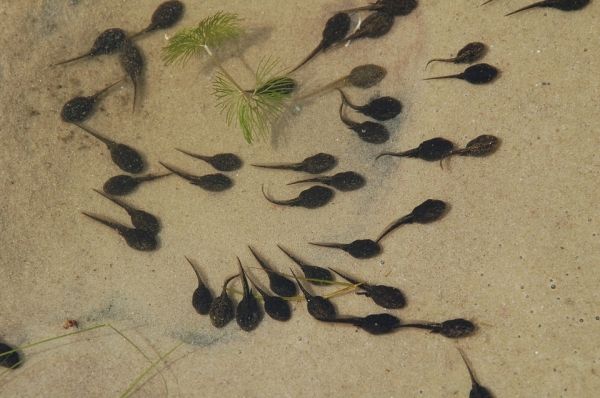In a warming world, animals could live or die by what’s in their gut. That’s one conclusion of a new study by Pitt biologists showing that tadpoles are less able to cope with hot temperatures without the help of microbes. The results could spell a one-two punch for amphibians and other sensitive animals.
“As temperatures are warming, if animals are experiencing disruptions in their microbial communities — as we know can happen due to human-caused stress — then that could lead them to not survive as well,” said lead author Samantha Fontaine, a PhD student in the Kenneth P. Dietrich School of Arts and Sciences.
Amphibians are especially sensitive to their environments, and there’s reason to believe that they’d be vulnerable to climate change, too. A shift of just a few degrees can make a big difference for animals like frogs and toads, which unlike mammals can’t regulate their own internal temperatures.
Fontaine suspected that microscopic organisms called microbes — increasingly recognized to play an important role in health — might help amphibians handle heat and cold. So she raised tadpoles in water that ranged from 57 to 82 degrees Fahrenheit and split them into two groups raised in different kinds of water: Half in microbe-rich pond water, and half in pond water treated with heat and pressure to kill most microbes. The latter resulted in tadpoles with fewer kinds of microbes living in their guts.
Read more at University of Pittsburgh
Photo Credit: MarjanNo via Pixabay


